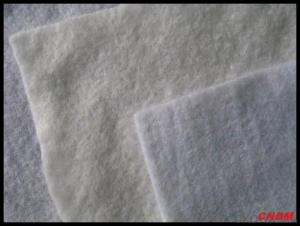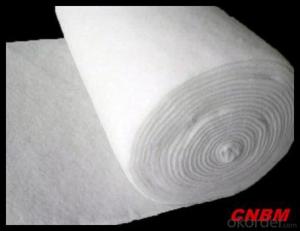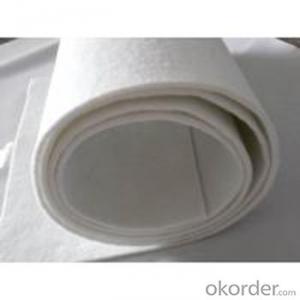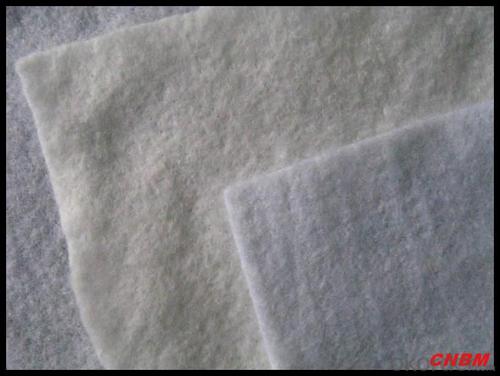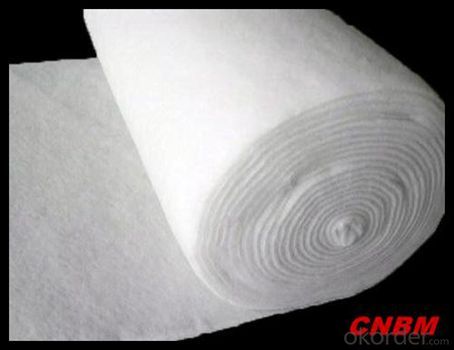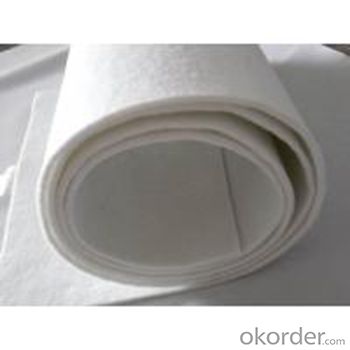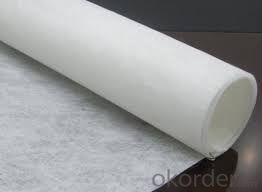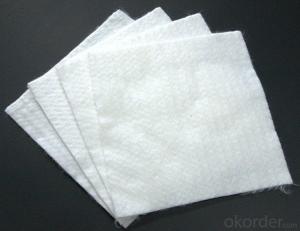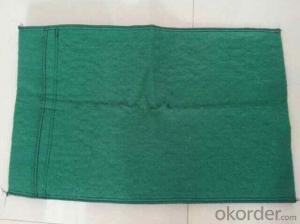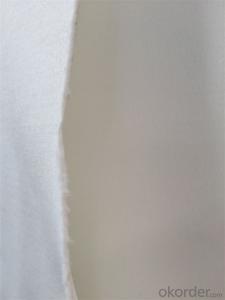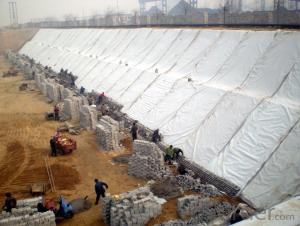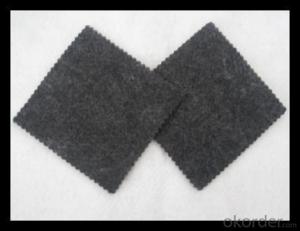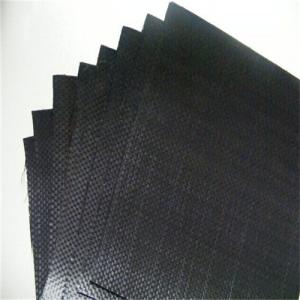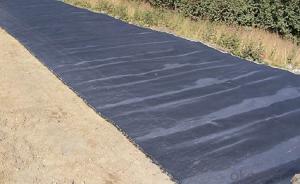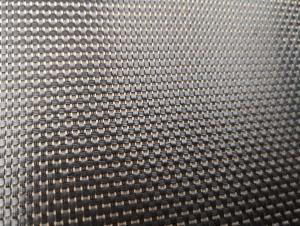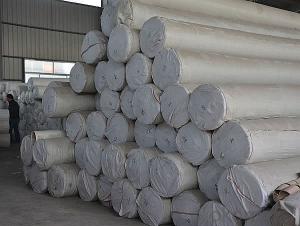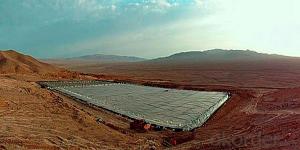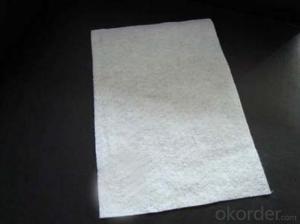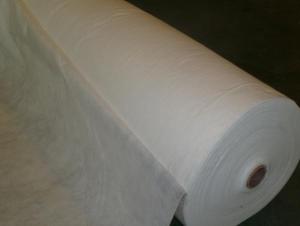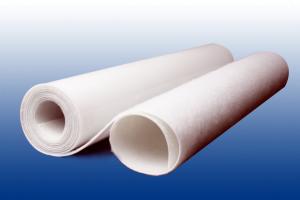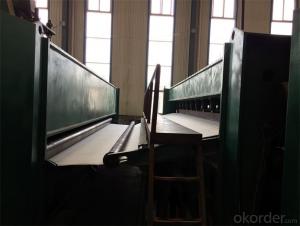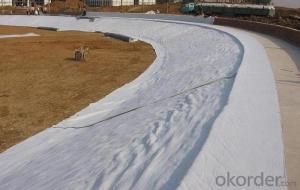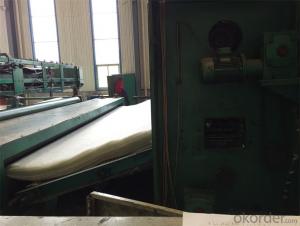Woven Stabilization Geotextile Fabric for Road Construction
- Loading Port:
- China main port
- Payment Terms:
- TT OR LC
- Min Order Qty:
- 1000 m²
- Supply Capability:
- 500000 m²/month
OKorder Service Pledge
OKorder Financial Service
You Might Also Like
Specification
| Project | 100 | 150 | 200 | 250 | 300 | 350 | 400 | 450 | 500 | 600 | 800 | Remarks |
| Mass per unit bias% | -8 | -8 | -8 | -8 | -7 | -7 | -7 | -7 | -6 | -6 | -6 | |
| Thickness≥ | 0.9 | 1.3 | 1.7 | 2.1 | 2.4 | 2.7 | 3.0 | 3.3 | 3.6 | 4.1 | 5.0 | |
| Breaking force≥ | 2.5 | 4.5 | 6.5 | 8.0 | 9.5 | 11.0 | 12.5 | 14.0 | 16.0 | 19.0 | 25.0 | |
| CBR bursting strenth ≥ | 0.3 | 0.6 | 0.9 | 1.2 | 1.5 | 1.8 | 2.1 | 2.4 | 2.7 | 3.2 | 4.0 | |
| Tearing force ≥ | 0.08 | 0.12 | 0.16 | 0.20 | 0.24 | 0.28 | 0.33 | 0.38 | 0.42 | 0.46 | .060 | |
| Width bias% | -0.5 | |||||||||||
| Elongation at break % | 25-1000.07-0.2 | |||||||||||
| EOS 090mm | ||||||||||||
| Coefficient of vertical permeability ,cm/s | k×(10-1~10-3) | K=1.0-9.9 | ||||||||||
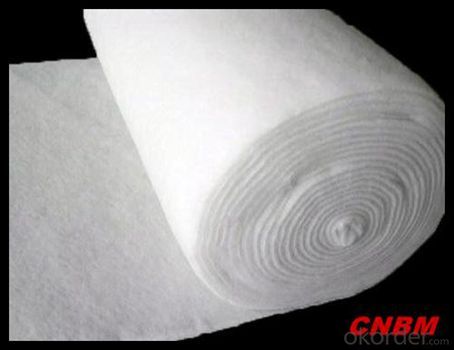
Non-woven Geotextile is widely used
in the areas of railway,highway,water conservancy,dam,tunnel,subway.
The major functions of Non-woven Geotextile: Separation, filtration, drainage, reinforcement, protection, and liquid barrier.
The geotextile can also be heat treated by infrared at customer's requirements. Our geotextile are UV stabilized to give protection against aging under exposure to natural ultra-violet light
Packaging & Shipping
Packing: PLASTIC FILM INSIDE, AND WOVEN BAG OUTSIDE
Shipping: About 15 days after receipt the deposit
pecifications
geotextile fabric
permeability,filtration,easy for construction
ISO and CE certificate
Good quality and competitive price
Our Service
Quality assurance
1.On a regular basis or as per your request,we entrust national testing agencies to conduct quality inspections
2. Strictly in accordance with the ISO9001-2008 international quality system standard,we monitor and manage the whole process throughout production,quality testing,and measurement to ensure product quality
3. For quality-related construction delay or substandard construction(except for damage or losses due to customer’s responsibility or irresistible natural disasters),we have refunding,replacement,and repair services.We will respond to customers’ feedbacks on quality issues within 24 hours.
After-sales service
1.In order to provide customers with comprehensive technical support,we will provide technical and other related information upon request in a timely manner.
2.In required,we will appoint specialized technicians to the construction site to give technical trainings to construction people,and offer technical guidance throughout the whole construction process.
3.For damage due to shipment and delivery,after we receive the complaint,we will check the issure through provided pictures and videos.If our responsibility is confirmed,we wil offer free replacement.
4.When the construction is completed,as your request,our technical staff may participate in the final acceptance.
FAQ:
Q: What kind of payments does jenor support?
A: T/T, L/C, Cash are accepted.
Q: Do you charge for the samples?
A: Accordeing to our company policy, the samples are free, we only charge the freight fee. And we will return the freight fee during the next order.
Q: Can you produce according to customers' design?
A: Sure, we are professional manufacturer, OEM and ODM are both welcome.
Q: Do you have other products?
A: Yes, please check the pictures:
- Q: How do geotextiles help in filtration?
- Geotextiles help in filtration by acting as a barrier that allows water to pass through while preventing the movement of soil particles. They effectively filter out sediment and other contaminants, improving water quality and preventing clogging in drainage systems.
- Q: How do geotextiles help with drainage?
- Geotextiles help with drainage by providing a filtration layer that prevents soil particles from clogging drainage systems, allowing water to flow freely while still retaining soil in place.
- Q: 5KN or 50KN
- I answered someone else on this question 1. multiply the 1.5th of the expected value of the geotextile sample by the size of the geometric cloth. 2. If you do not know the expected value, it should have a standard tensile strength range, with the tensile strength multiplied by the cross-sectional area of geotextile (thick by the width) to find the force value. 3. If you do not know, it is recommended to choose 50KN or 100KN equipment. Of course, if you need to test the geotextile was cut into a width that is particularly small, then you can use a small amount of force, but it is recommended if you choose from 5KN and 50KN election 50KN good.
- Q: Can geotextiles be used in coastal dune stabilization projects?
- Yes, geotextiles can be used in coastal dune stabilization projects. These woven or non-woven fabrics can be employed to reinforce and stabilize sand dunes by trapping and retaining sand particles, preventing erosion caused by wind and water. Geotextiles offer a cost-effective and environmentally friendly solution for maintaining the integrity and resilience of coastal dunes, protecting them from erosion and promoting sustainable coastal management.
- Q: How do geotextiles contribute to the stability of road embankments?
- Geotextiles contribute to the stability of road embankments by providing reinforcement and separation. They act as a barrier between the different layers of soil, preventing their intermixing and maintaining their individual integrity. This enhances the load-bearing capacity of the embankment, reducing settlement and improving its overall stability. Geotextiles also help in drainage by allowing water to pass through, preventing excess moisture buildup that can weaken the embankment.
- Q: Can plant roots penetrate geotextiles? Which kind of similar material can keep soil and water and let the plant roots pass through it?
- Of course. The roots of plants are omnipotent, and it has a strong vitality. It is small, but its power is infinite. It is also because it is small, it makes it seamless no omnipotent. It can wear the river across the sea, it can wear stone to break the ground, it is powerful you can not imagine, you do not see the cliffs on the grass, the king did not see the plow of the fern leaves!
- Q: Filament geotextile in the storage should pay attention to what matters
- Geotextile storage to meet the following requirements: the Treasury clean no debris, no chemical corrosion; not sun, tarnished; not weight, not scratch, to prevent violent collision; away from the hot source; dry and cool warehouse; There is a need for fire tools, fire hydrants, fire extinguishers and so on. Geotextile transport, loading and unloading requirements: can not be mixed with sharp items; hoisting with flexible rope; can not use steel wire rope directly hoisting; not with sticks, iron bars and other hardware auxiliary top loading; Stress dispersion measures, to avoid tightly tightened with a rope.
- Q: Are geotextiles suitable for use in geogrid reinforced embankments?
- Yes, geotextiles are suitable for use in geogrid reinforced embankments. Geotextiles provide separation and filtration properties, which help to prevent soil erosion and ensure the stability of the embankment. They also enhance the overall performance of the geogrid by improving load distribution and reducing differential settlement. Therefore, using geotextiles in conjunction with geogrids is a common and effective method for reinforcing embankments.
- Q: There are engineering budgets
- Where are you from where you want to sell
- Q: Are geotextiles suitable for use in landfill applications?
- Yes, geotextiles are suitable for use in landfill applications. Geotextiles can effectively control erosion, provide drainage, and enhance soil stability in landfills. They also help in preventing the migration of fine particles and provide separation between different layers of waste materials, ensuring proper functioning and longevity of the landfill.
Send your message to us
Woven Stabilization Geotextile Fabric for Road Construction
- Loading Port:
- China main port
- Payment Terms:
- TT OR LC
- Min Order Qty:
- 1000 m²
- Supply Capability:
- 500000 m²/month
OKorder Service Pledge
OKorder Financial Service
Similar products
Hot products
Hot Searches
Related keywords
